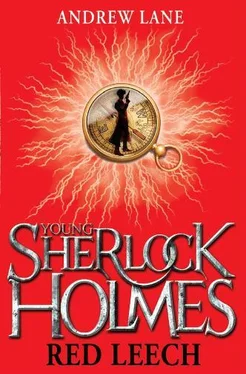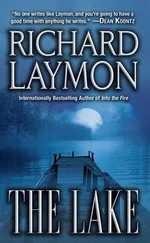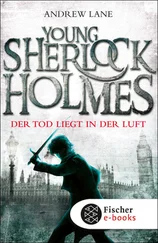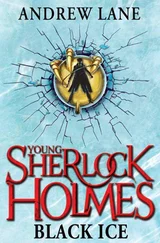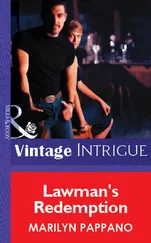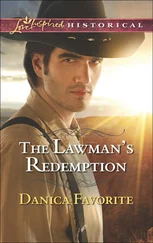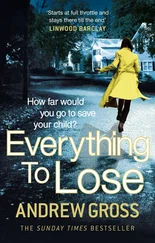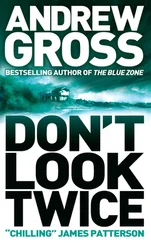“It’s a newly written violin concerto in G minor by a German composer by the name of Max Bruch. I met him in Koblenz, last year. He gave me a copy of the score. I’ve been trying to get it right ever since. I think one day it will be a part of the repertoire of every classical violinist.”
“It sounded incredible.”
“He uses some ideas from Felix Mendelssohn’s works, but he gilds them with a particular glint of his own.”
“Are you a professional musician?”
He smiled; an easy, unforced grin that revealed strong white teeth. “Sometimes I am,” he said. “I can turn my hand to many trades, but I seem to keep coming back to the violin. I’ve played in orchestras in concert halls and string quartets in high-class tea rooms, I’ve busked on the streets and accompanied singers in music halls while beer glasses fly overhead and shatter against the stage. My name, by the way, is Stone. Rufus Stone.”
“I’m Sherlock Holmes.” Sherlock walked over and extended his hand. Rufus Stone took it, and they shook for a few moments. Stone’s hand was firm and strong. “Is that why you’re going to America?” Sherlock continued. “To play the violin?”
“Opportunities are drying up in England,” Stone replied. “I was hoping that the New World might have some use for me, especially after the cream of their manhood was cut down in the War Between the States.” His gaze flickered up and down Sherlock’s frame. “You have the build of a good violin player. Your posture is upright, and your fingers are long. Do you play?”
Sherlock shook his head. “I don’t play any instrument,” he admitted.
“You should. All the girls love a musician.” He tilted his head to one side, almost as if the violin was still there. “Can you read music?”
Sherlock nodded. “I learned at school. We had a choir, and we had to sing every morning.”
“Would you like to learn the violin?”
“Me? Learn the violin? Are you serious?”
Stone nodded. “We’ve got a week before we dock, and that time will pass awfully slowly if we don’t find some way to amuse ourselves. When I get to New York I’m going to be looking for employment as a violin teacher. It would help if I could actually say that I’ve taught somebody to play the violin. At the moment I have some good ideas about how to do it, but I’ve never turned them into practice. So — what do you say? Are you willing to help me out?”
Sherlock thought about it for a moment. He didn’t play whist or bridge, and the only alternative was laboriously translating the copy of Plato’s Republic which Mycroft had given him. This sounded far more interesting. “I can’t pay,” he said. “I haven’t got any money’
“There will be no financial encumbrance on you. You’ll be doing me a favour.”
“What can you teach me in a week?”
Stone considered for a moment. “We can start with posture,” he said. “The way you stand and the way you hold the violin. Once I’m happy you’ve got that right, we can move on to getting the various right-hand techniques correct — détaché, legato, collé, martelé, staccato, spiccato and sautillé. Once I’m happy with that, we can move on to the left-hand techniques — finger dropping and lifting, shifting and vibrato. And then, I’m afraid, it’s practice, practice, practice — scales and arpeggios until the tips of your fingers are sore.”
“I said I can read music, but I can’t hold a note,” Sherlock admitted. “Our choirmaster said I had a cloth ear.”
“No such thing,” Stone said dismissively. “You may not be able to sing, but I guarantee I can get a tune out of you by the end of the week that people will throw coins for — even if it is just a German polka. What do you say?”
Sherlock grinned. Suddenly the voyage seemed like it might be a lot more interesting than he’d expected. “It sounds good,” he said. “When do we start?”
“We start now,” Stone said decisively, “and we run on until lunchtime. Now, pick up the violin. Let’s see how good your stance is.”
For the next three hours, running from the end of the breakfast session to halfway through lunch, Sherlock learned how to stand properly, how to hold a violin and how to hold a bow. He even played a few notes, which sounded like a cat being strangled, but Rufus (“Call me Rufus,” he had said when Sherlock called him Mr Stone. “When you say “Mr Stone” it makes you sound too much like a bank manager for my liking’) told him that it didn’t matter. The purpose of the morning’s session, he pointed out, was not to learn how playing the violin sounded but to learn how it felt. “I want you to be relaxed, but ready. I want your arms and fingers and shoulders to know all the shapes that a violin can make against them. I want that violin to feel like an extension of your own body by the time we’ve finished.”
By the end of the time, Sherlock’s body was aching in places he didn’t even think he had muscles, his neck was cramping and the tips of his fingers were tingling from where he’d been pressing the catgut strings down. “I’ve just been standing in one spot!" he protested. “How come I feel like I’ve been running a race?”
“Exercise isn’t necessarily about moving,” Rufus said. “It’s about muscles tensing and relaxing. You don’t often see fat musicians. That’s because although they’re sitting down or standing in one place, their muscles are continually at work.” He paused, face creasing in thought. “Except for percussionists,” he said eventually. “They just get fat.”
“What next?”
“Next,” Rufus said, “we have luncheon.”
While Rufus returned his violin case to his cabin, Sherlock went looking for Amyus Crowe. The big American had emerged from wherever it was he had been sequestered, but there was no sign of Virginia. As they all sat at the communal table, Sherlock introduced Crowe to Rufus Stone.
“Pleased to make your acquaintance, sir,” Crowe said, shaking Rufus’s hand. “You’re a musician, I perceive. A violinist.”
“You heard me?” Rufus said, smiling.
“No, but you’ve got fresh dust on your shoulder. In my experience dust on a man’s jacket means one of three things: he’s a teacher, he plays billiards or he plays the violin. There ain’t any billiards table aboard this ship, to my knowledge, an’ I’m not aware there are enough children on this ship to make it worth while settin’ up a classroom.”
Sherlock checked the shoulder of his own jacket. Indeed, there was a fine patina of dust across it. He rubbed some between his thumb and forefinger. It was an amber-brown colour, and felt sticky.
“This isn’t chalk,” he said. “What is it?”
“Colophone,” Rufus explained.
“A form of resin,” Crowe interrupted. “Known as “rosin” to musicians. It’s collected from pine trees an’ then boiled an’ filtered before bein’ formed into a cake, like soap. Violinists coat their bows with it. The adhesion the resin causes between the strings and the bow is what makes the strings vibrate. Of course, the resin dries out and becomes a dust, which is deposited on the shoulder as that’s the bit of the body closest to the instrument.” He glanced at Sherlock’s jacket, and frowned. “You’ve been playin’ the violin as well. No, you’ve been learnin ’ the violin.”
“Rufus — Mr Stone — has been teaching me.”
“You don’t mind, Mr Crowe?” Rufus asked. “I only offered to help us both pass the time.”
“I never put much store in music,” Crowe rumbled. “The only tune I know is your National Anthem, an’ that’s only because folks stand up when it’s played.” He glanced at Sherlock from beneath shaggy eyebrows. “I was intend-in’ to continue our studies while we were on the ship, but Virginia ain’t taking too well to the voyage.” He shook his head. “I can’t rightly recall if I mentioned it but her mother — my wife — died on the last transatlantic voyage we made. That was from New York to Liverpool. The memory weighs heavily upon her mind. An’ on mine.” He sighed. “Memory’s a funny thing. A person can slide memories of just about anythin’ to one side an’ ignore them, but sometimes the slightest thing can set them off again. Usually it’s smells an’ sounds that recall memories the best. Ginnie’s not talked about her mother for a while now, but the smell of the ocean an’ the smells of the ship have just bought it all floodin’ back.”
Читать дальше
